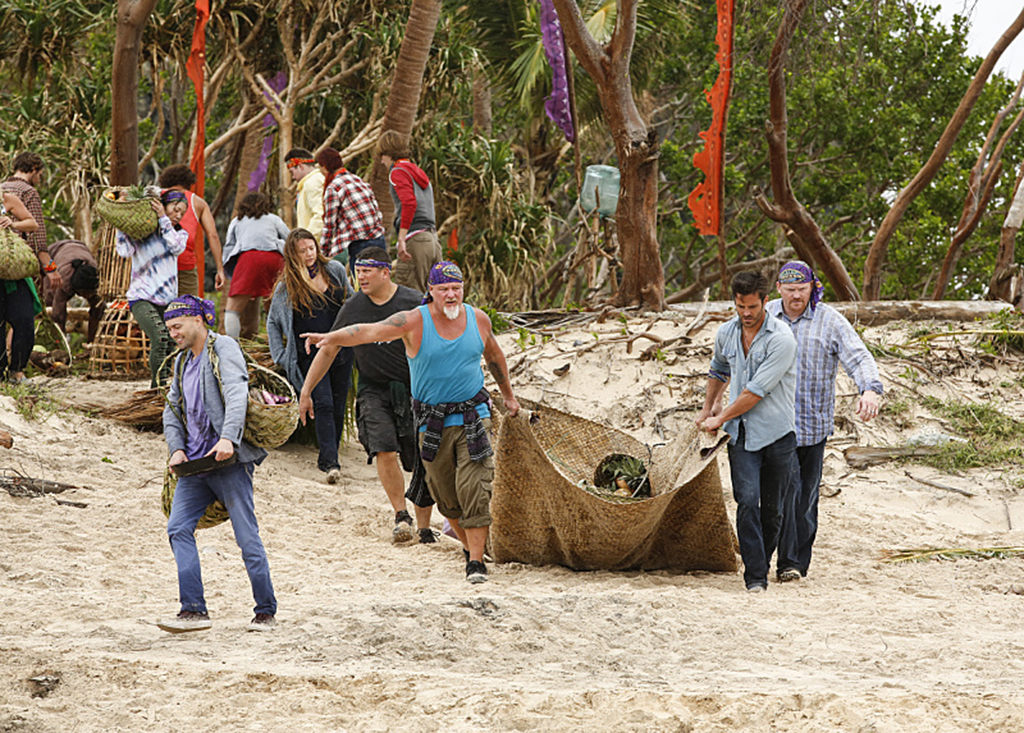This Wednesday (Sept. 21), television fixture Survivor returns for its 33rd season, 16 years after the cultural phenomenon swept the world in the summer of 2000. For some UFV students, that year may sound like the distant past, perhaps even before their earliest memories. While not nearly as pervasive as that first year, when it all but created the reality genre, the show still comfortably draws a large crowd every week.
I’d always assumed it was dull, lazy TV, but four years ago I gave it a chance. Fast forward to now, and I’ve watched every past season, re-watched a few, and am struggling to fit three episodes a week of the recently debuted Australian Survivor into a schedule already packed with school and work. I think it’s safe to say I’m a fan of the show. From an analytical perspective, it’s fascinating to pick apart the ways personality, age, race, and gender all play into the competition, not to mention how the producers choose to portray these elements. And that’s before you get to the strategy, and yes, all the drama you’d expect from starving people competing for a million dollars.
I never predicted that I’d be this obsessed with the show, but that’s because I had no idea of its depth and what an effective mirror it holds up to not just the players, but to human interaction in general. Despite the name, Survivor is a social game through and through, with the wilderness elements taking a backseat in modern seasons. The strategies its most successful players employ aren’t just good game advice — they’re good life advice, especially for someone suddenly thrown into a new, and potentially uncomfortable social situation. University, for example.
In the first season, players set their own parameters for what was “fair.” They viewed the game as a meritocracy, and voted to eliminate those that they considered least deserving. That is, until four contestants banded together and became an unstoppable voting bloc that cruised all the way to the endgame. Viewing audiences vilified them, but alliances became a staple of every following season. In the book The Psychology of Survivor, Dr. Anne Moyer explains that alliances are not purely strategic; studies showed “those subjected to repeated social upheavals engage in significantly more affiliative behaviours,” which “serve to buffer the stress of losing one’s sense of place.” That certainly applies in a school setting, too. Adjusting to university is a massive change, especially for students who may have moved away from home at the same time. Joining a club or social group of students who can show you the ropes, offer advice, and understand your struggles is an excellent coping method. You can find a list of current clubs on the Student Union Society website at www.ufvsus.ca
Another key component of both Survivor and student life is adaptability. Whether short or long term, it’s good to leave your options open and have a backup plan, because you never know when you’ll be hit with a twist. In the game that could be a shuffling of teams, a betrayal, or an opponent’s hidden immunity idol. In the real world, cars break down, group projects fall apart, and required classes fill up. By planning for possible situations, you’re less likely to be caught off-guard. An academic advisor can help you figure out your path and lay down a plan. Even if you don’t end up following it, it’s something you can always fall back on. Familiarizing yourself with services like the campus food bank and FixIT before you need them will also help you keep a clear head if life throws you a curveball.
Finally, balancing your efforts is key. If you work constantly from day one, either studying or formulating strategies, you’ll burn out long before the semester — or season — is over. Many Survivor contestants have fallen into paranoia by worrying about every detail and found themselves voted out for being unpredictable. Whether you’re trying to win the million dollars or get through the school year, you have to take the time to relax. There’ll be days where you have to work nonstop to finish an assignment or prepare for an exam. But for the benefit of your mental health, school can’t become the only thing you do with your life. You may not have a lot of free time, but consider taking an hour every week to relax, shut off your brain, and watch starving people manipulate each other on a tropical island.
Survivor’s 33rd season premieres September 21 at 8:00 p.m. ET/PT on Global.
Jeff was The Cascade's Editor in Chief for the latter half of 2022, having previously served as Digital Media Manager, Culture & Events Editor, and Opinion Editor. One time he held all three of those positions for a month, and he's not sure how he survived that. He started at The Cascade in 2016.


